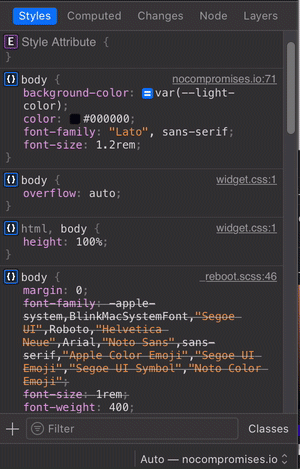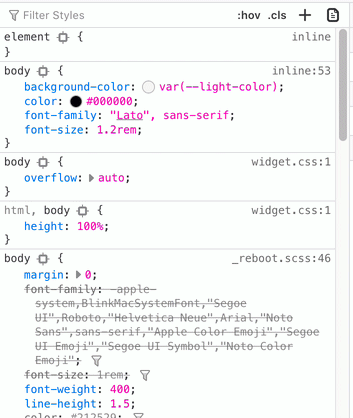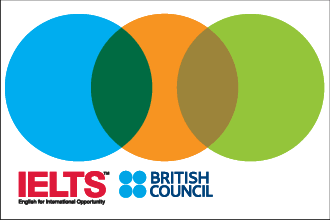Friends Glossary - Unpacking The Show's Special Sayings
If you've spent any time at all watching a beloved television program about six friends living in New York City, you probably know that it gave us more than just laughs. It also gave us a whole new way to talk, didn't it? This show, which truly captured the hearts of many people across the globe, introduced a bunch of unique words and little sayings that, frankly, became a part of how we chat every day.
You see, this particular show, which continues to bring smiles to faces on streaming services, did a lot more than just entertain. It taught many people a bit about the English language, too it's almost like an unofficial language teacher. From the silly moments to the heartfelt ones, the program offered a collection of phrases that, you know, just stuck. We're talking about the kind of words that only true followers of the show will immediately get.
So, what exactly are these terms, and where did they come from? Well, this article is here to help you get a better sense of the special language that grew out of that apartment in Manhattan. We'll look at the funny meanings and where these sayings first showed up, giving you a chance to appreciate the linguistic side of this cultural touchstone, in a way.
- %D8%B1%D8%AD%D9%8A%D9%84 %D8%B2%D9%88%D8%AC%D8%A9 %D9%8A%D8%B9%D9%82%D9%88%D8%A8
- China Moon Laser Targeting
- Trump Security Clearance Suspension Perkins Coie
- Tran Nhat Phong
- Golden Retriever Puppies
Table of Contents
- The Show's Special Talk
- Why Do We Still Talk Like That?
- What's in a Friends Glossary?
- Beyond the Catchphrases - Learning with Friends
- How Did These Phrases Become So Popular?
- Iconic Moments and the Friends Glossary
- Can a Friends Glossary Help Your Everyday Conversations?
- The Lasting Influence of Friends and Its Language
The Show's Special Talk
The television program, which first appeared on screens in the fall of 1994, really did something interesting with how people speak. It didn't just tell stories; it actually helped create and popularize a bunch of expressions. Some of these words were totally new, like when someone needed to figure out what a "transponster" was, which, you know, left everyone a bit confused but also laughing. Others were familiar words that got a whole new, funny meaning because of the situations the characters found themselves in, like when someone yelled "Pivot!" while moving a sofa, which, quite honestly, became a shared experience for many.
This show, created by David Crane and Marta Kauffman, ran for ten seasons, ending in the spring of 2004. Over that time, it gave us so many phrases that, well, they just stuck. From a "friend zone," which describes that tricky spot where romantic feelings don't quite happen, to "lobster," a sweet way to talk about finding your soulmate, these terms became part of the common talk. And who could forget "unagi," which was supposed to be a state of total awareness but, in the show, was just a bit silly? Or even the word "moist," which, you know, sometimes makes people uncomfortable, but the show made it funny. These words, in a way, are like secret handshakes for those who watched the show.
The impact of this show on language is pretty remarkable, actually. It's not just about remembering funny lines; it's about how the show's writers played with words, giving them fresh life and sometimes even inventing them. This helped a lot of people who were learning English pick up on common sayings and even some of the more informal ways people talk. It's pretty cool, when you think about it, how a television program could do that, isn't it?
Why Do We Still Talk Like That?
So, why do these particular phrases from the show still pop up in conversations, even years later? Well, a lot of it has to do with how relatable the characters were and the situations they got into. The show had a way of taking everyday life and making it really funny, so when a character said something memorable, it just clicked with people. It's almost as if the show offered a shared experience, a common reference point for friends and family, you know?
The characters themselves had very distinct ways of speaking, which made their unique phrases even more special. Think about the way certain characters emphasized words or had their own little quirks. This made the phrases not just funny, but also deeply connected to the people saying them. It’s like, when you hear "How you doin'?", you instantly know who said it and the kind of situation it was used in, which is pretty powerful, really.
What's in a Friends Glossary?
A "friends glossary" is basically a collection of all those special words, sayings, and inside jokes that the characters used. It's a way to keep track of the language that made the show so unique. These terms often show off the different personalities and funny experiences of the characters, which is a big part of why the show was so appealing. For example, it might include terms like "smelly cat" or "we were on a break," which, you know, bring back specific memories and laughs for fans. It's like a little dictionary for the show's special language, you could say.
Having a "friends glossary" helps fans feel even more connected to the show. It's a way to celebrate the clever writing and the humor that came from the characters' interactions. It also serves as a quick way to remember those specific moments that made us laugh out loud. So, if you're ever trying to remember what "unagi" meant, or why "pivot" is such a big deal, a glossary like this would be just the thing to look at, naturally.
Beyond the Catchphrases - Learning with Friends
It's pretty interesting to think about how this television program actually helped people learn English. Because the show focused on everyday situations and conversations among a group of young people, it was a really accessible way for viewers around the world to pick up on how native speakers talk. The language was clear, often repeated, and full of common expressions, which, frankly, makes for a great learning tool. You could hear how people really spoke, not just how they might speak in a textbook, which is a significant difference.
For instance, many online courses and tutoring programs, like Promova, actually use the show to help people improve their English skills. They might guide you through episodes, pointing out useful words, common phrases, and idioms. And, you know, websites like Quizlet have flashcards with terms from the show, like "zest" or "naughty," helping learners remember new vocabulary in a fun way. It just goes to show how a popular show can become a practical resource for learning, doesn't it?
The way the show made certain expressions "mainstream" is also a big part of its linguistic story. Words that might have been less common, or used in a particular way, suddenly became familiar to millions. This happened because the show was so widely watched and discussed. When a character used a phrase in a funny or memorable scene, it stuck in people's minds and then, pretty soon, started popping up in their own conversations, more or less.
How Did These Phrases Become So Popular?
The show's popularity played a huge part in how its phrases spread far and wide. It wasn't just a hit in one country; it was a global phenomenon. People from all sorts of places watched it, and because they connected with the characters and the humor, they also picked up on the language. It’s like, when you share a joke with someone, and then you both start using a specific word from that joke, you know? The show did that on a massive scale, basically.
The writers of the show were also very clever with how they used language. They weren't afraid to play around, to create new words, or to give old words a fresh twist. This creativity made the dialogue feel real and very funny. The way characters mispronounced things, or used words in unexpected ways, contributed a lot to the show's unique humor and, in a way, made the language itself a character. This cleverness, combined with the show's broad appeal, helped these phrases become truly iconic, honestly.
Iconic Moments and the Friends Glossary
Many of the phrases that make up the "friends glossary" are tied directly to specific, memorable scenes from the show. It's not just about the words themselves, but the context in which they were used. For example, when someone says "Could I BE any more…", you immediately picture a particular character and his dramatic delivery. These moments made the phrases stick in our minds because they were so funny or so true to life, or both, really.
The humor often came from the characters' reactions to these phrases or the situations they created. Think about the confusion around "transponster" or the sheer frustration involved in the "pivot" scene. These moments were so well-done that the words became shorthand for the entire comedic situation. So, a "friends glossary" isn't just a list of words; it's a collection of little windows into the show's funniest and most beloved scenes, you know?
Can a Friends Glossary Help Your Everyday Conversations?
Absolutely, a "friends glossary" can actually add a lot of fun to your daily chats. Using these phrases is a bit like having an inside joke with anyone who also watched the show. When you drop a line like "We were on a break!" or ask "How you doin'?", you're not just speaking; you're sharing a cultural reference. It creates an instant connection and often brings a smile or a laugh, which is pretty cool, isn't it?
It's also a way to express yourself with a bit of humor or irony. For instance, if you're trying to move a piece of furniture, yelling "Pivot!" might just make the whole stressful situation a little bit lighter. These phrases are versatile, too, and can be used in many different contexts, making your conversations more lively and, in some respects, more colorful. It's a fun way to keep the spirit of the show alive in your own life, obviously.
The Lasting Influence of Friends and Its Language
The show's influence on language is something quite special. It truly redefined and made popular a good number of expressions, and it even gave us a few brand new words along the way. The program's writers were very good at using the English language to its fullest, making it richer with dozens of new terms. This lasting impact means that the show is not just remembered for its stories, but also for the way it shaped how many of us talk, which is a pretty unique legacy.
From the dreaded "friend zone," where romantic possibilities just disappear, to the very sweet idea of a "lobster," these words have found a permanent spot in our collective vocabulary. The show, which starred Jennifer Aniston, Courteney Cox, Lisa Kudrow, Matt LeBlanc, Matthew Perry, and David Schwimmer, really left its mark. It's a show that continues to be watched and loved, and its special language is a big reason why it remains so relevant and fun for so many people, even today, as a matter of fact.
So, we've explored how a beloved television program gave us a whole new way to talk, from funny invented words to everyday sayings that got a fresh meaning. We looked at why these phrases stuck around, what you might find in a collection of these special terms, and how the show even helped people learn English. We also thought about how these expressions became so widely known and how they still pop up in our daily chats, making conversations a little more fun.
- Swanson Vitamins
- Travis Tritt Songs
- Pam Bondi Wealth
- Cast Of Interior Chinatown Television Show
- Criminal Minds Spencer

Seeing Calculated Values of CSS Variables in Browsers | Aaron Saray

Seeing Calculated Values of CSS Variables in Browsers | Aaron Saray

Steps to Register for the IELTS at British Council | Nurseonlineph